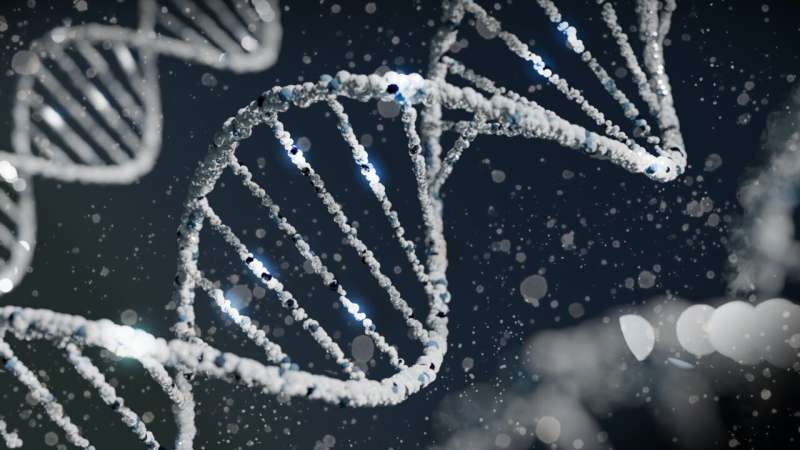This article has been reviewed according to Science X's editorial process and policies. Editors have highlighted the following attributes while ensuring the content's credibility:
fact-checked
trusted source
proofread
New link between fatal muscle wasting disease gene and cancer discovered

Mutations of the gene encoding dystrophins have long been known to cause the debilitating muscle-wasting disease Duchenne muscular dystrophy (DMD), which affects one in every 5,000 children born, mostly boys. People with the condition will usually only live into their 20s or 30s.
Now, a study, led by the University of Portsmouth, has found that the same gene has a role in oncology. A team of international researchers analyzed a broad spectrum of malignant tissues, including from breast, ovarian, and gastrointestinal cancer patients.
The DMD gene expression was reduced in 80% of these tumors. This low expression of dystrophins was associated with a more advanced stage of cancer and reduced survival across different tumors.
The study, published in Cancers, calls for a re-evaluation of the current view that dystrophin expression is only important in muscles, and when found across numerous tissues is the result of an "illegitimate transcription."
Senior author, Professor Darek Gorecki from the School of Pharmacy and Biological Sciences at the University of Portsmouth, said, "The findings that the DMD gene has a role in tumors, expands the growing evidence of its significance beyond Duchenne muscular dystrophy.
"Further investigation is needed to better understand the role of DMD in malignancies and how it may be exploited in monitoring cancer progression and treatment."
Moreover, these findings build on the recent discovery that the disease begins much earlier than previously thought. In 2021, the team published results of modeling DMD to look at its development, from its initial trigger and first manifestation. They found evidence of abnormalities even before birth in the embryo.
Given the similarities between early embryo development and cancer formation, including invasive potential, changes in gene expression and other vital behaviors, the team decided to investigate the DMD gene across the spectrum of tumors, which led to this discovery.
Most boys with DMD are diagnosed between 2 and 5 years old, by which time the damage to their bodies is already significant.
Professor Gorecki says these new findings should be taken into consideration as delay in identifying the condition may be preventing therapeutic interventions that could help slow, if not stop, disease progression.
"The job of DMD, the largest human gene known, is far more complex than previously believed," he explained.
"It must be better understood if we want to find effective treatments for pathologies caused by its mutations."
More information: Nancy Alnassar et al, Downregulation of Dystrophin Expression Occurs across Diverse Tumors, Correlates with the Age of Onset, Staging and Reduced Survival of Patients, Cancers (2023). DOI: 10.3390/cancers15051378



















